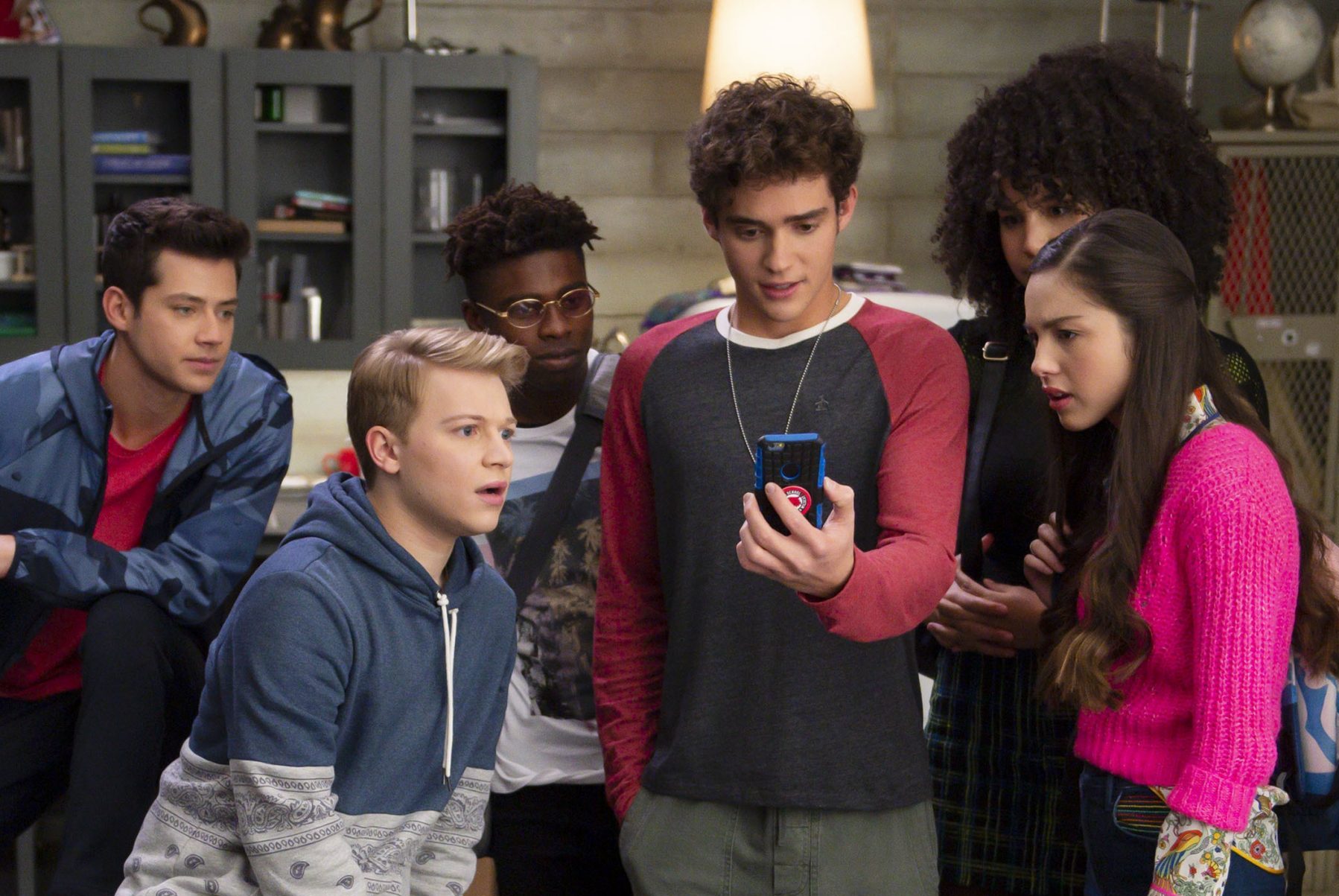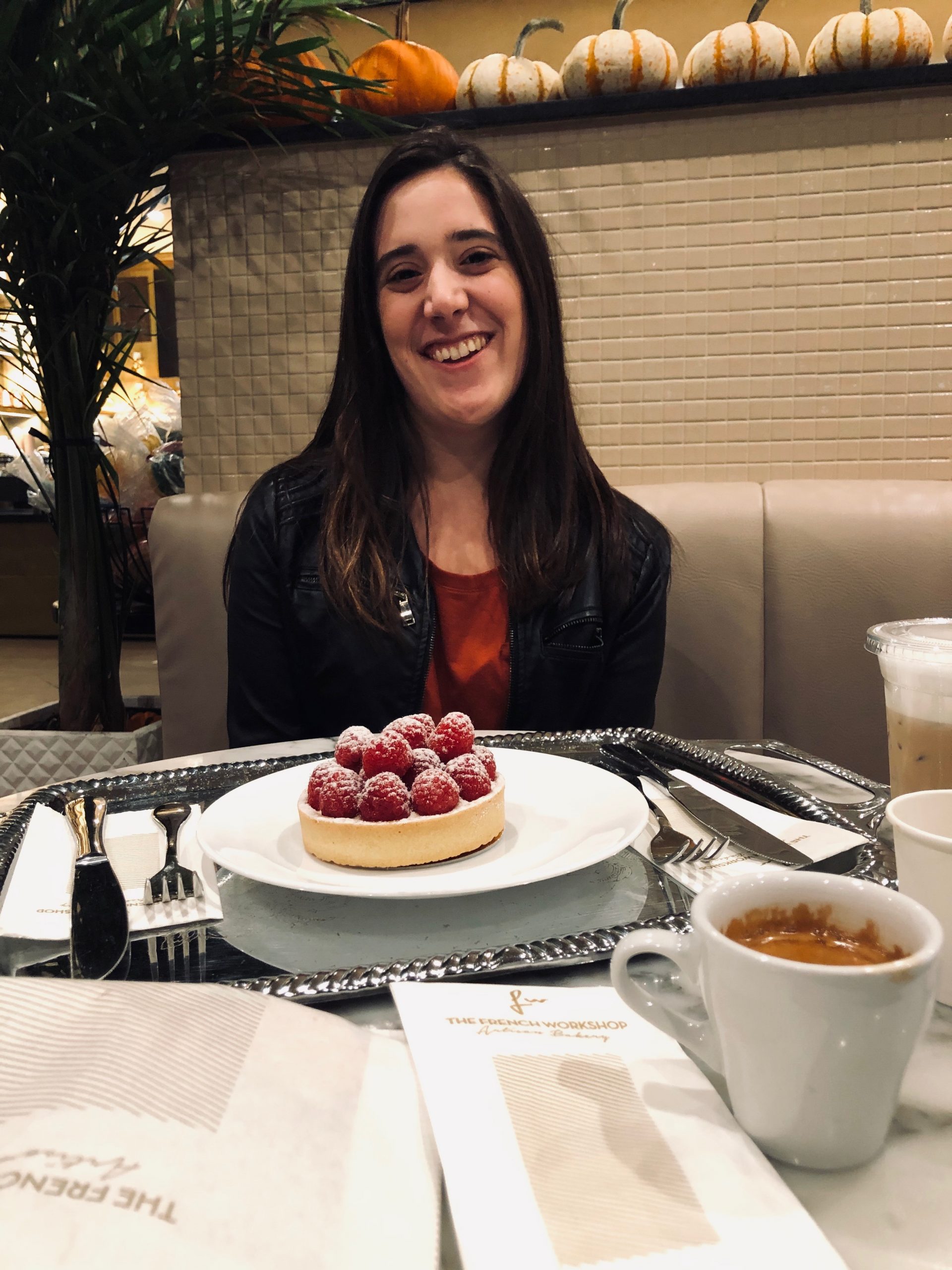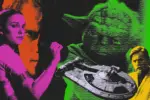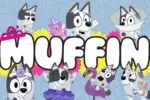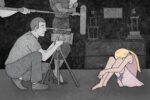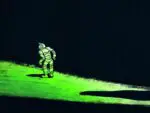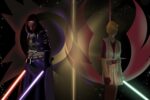Once a Wildcat, always a Wildcat — those were Troy Bolton’s final words to his East High classmates in the original “High School Musical” film franchise. Thirteen years later, the parting words of the teen heartthrob just about faded to a distant, Gen-Z memory.
That is, until “High School Musical: The Musical: The Series” (stylized as “HSMTMTS”) revived the legacy for a new generation of fans. The Disney + show was the start of something new — revolving around the dramas of a fictional high school theater program in a modern sitcom fusion of mockumentary and musical. There were nostalgic callbacks for those who grew up watching “High School Musical” to enjoy as well as updated aspects for newcomers.
Aside from the undeniable talent of the cast — the show stars the recently inaugurated queen of pop Olivia Rodrigo as Nini — the first season had consistency. It managed to stick with and neatly resolve every loose end by the season finale. Seeing the characters pull off a messy but spirited production of “High School Musical” in the final episode was the ideal resolution to the series’s premise — fictional students of East High reliving their school’s legacy by staging a production of “HSM.”
There was a definite self-aware quality to the first season; it was skeptical of its own nature. Even one of the series protagonists, Ricky (played by Joshua Bassett), comments on how musicals are “weird” and “unrealistic” before joining the theater clique himself.
But contrary to Ricky’s pessimism, none of the songs in Season 1 felt out of place. They contributed to the story in a way that felt organic. By including scenes of the characters rehearsing or performing for “High School Musical,” the series was able to incorporate the songs from the source material smoothly. Even more impressively, original songs written for the series serviced emotional moments of the characters’ arcs.
With the release of Season 2 this year, everything changed. Deciding to head in a completely new direction, it was clear the motto of “always a Wildcat” would no longer apply to the fictional students of East High. In an attempt to experiment with the limits of the show, Season 2 strayed far from its roots. At the conclusion of the season, fans were quick to express their distaste on TikTok and various other platforms.
The series had a lot going for it — an established fan base to rely on and a cast that already proved their vocal chops. But somehow it lost track of its very heart — the musical.
This season was supposed to give fans a production of a vastly different Disney classic, “Beauty and The Beast.” “Beauty and The Beast” obviously resonates with Disney fans for very different reasons than “High School Musical” does; this could have led to surprising new avenues for the show, but ultimately, it did the opposite, facilitating the season’s sharp decline.
Along with the plot of staging “Beauty and The Beast” came a popular Disney-trope: a melodramatic high school rivalry. However overdone, this conflict was enough to keep fans engrossed, as students of East High’s rival high school are slowly introduced and an Alan Menken Award in high school theater fuels a competition between them. The whole season builds up the question of whether the underdogs at East High will be victorious over their cocky counterparts.
But after all the momentum, the entire conflict gets scrapped when East High decides to drop out of the competition, all in just a couple of seconds of dismissive dialogue.
The Menken Awards plotline is not the only conflict left unresolved. The second to last episode of Season 2, when the series finally gets to opening night, features only a few scenes from “Beauty and The Beast.” The episode only allots time for performances of “Be Our Guest” and “Something There.”
But time wasn’t just stolen from performances. Episode 11 ends on the characters panicking that one of their key props is missing. This cliffhanger is left to dangle. As the finale episode begins, the curtain has already closed on stage and the conflict is brushed past with a few lines of dialogue. The lack of long-awaited “Beauty and The Beast” content and the Menken Awards cop-out make the season finale disappointing, to say the least.
The many filler episodes of this season contributed significantly to the rushed quality of its ending. One episode even spent its whole duration on a birthday party plot with no contribution to the overarching story. The first half of the season was a tedious crawl to get to any fundamental conflicts, collecting far too many story threads along the way, only to fail to knit them together as the show had done in Season 1.
According to showrunner Tim Federle, it was originally planned for the final episode of the season to include scenes from the Alan Menken Awards. However, East High was always going to pull out of the competition. Federle explains, “Ultimately, the logistical challenges of creating a television show during a pandemic were very overwhelming,” leading to the rushed feel of the finale.
But “HSMTMTS” is not just another series that fell victim to a rough year. It is generous to claim that these are the only problems with the finale. The series fell flat even in the smaller details.
Fans were furious that actress Julia Lester, who plays Ashlyn in the series, never earned her “yellow-dress,” show-stopper moment as Belle.
Casting Lester’s Ashlyn in the leading role for the musical instead of Rodrigo (whose character Nini played Gabriella Montez in last season’s fictional play) was a bold and progressive move. It seemed the series was finally going to pave the way for a different member of the amazingly talented cast to have the spotlight, subverting the idea that a show needs to stick to a singular main character.
At the beginning of the season, Ashlyn doubts her abilities to pull off playing Belle. She is worried that she does not fit the stereotypical, Disney-princess mold — a very contemporary and relevant issue for the series’s young adult audience. This was a big opportunity for Disney to make a statement about beauty standards and its own history of promoting harmful ones. Although Lester gets some moments to sing and act as Belle, she does not get the screen-time for a final, main-character moment. Nor are Ashlyn’s fears of not measuring up ever given catharsis. Rather, her insecurities are forgotten and never returned to.
Additionally, the entire season played up the rise of new power couple Gina (Sofia Wylie) and EJ (Matt Cornett) and their slow-burn romance. Just as the characters are about to have their first kiss, the scene unexpectedly cuts. Federle does not attribute this flaw to the pandemic, however, stating that he “wanted the audience to fill that in with their own memory.” Federle goes on to acknowledge that he is aware of the “cop-out” nature of his answer. Since Season 1 featured many PDA scenes between Nini and Ricky, Federle’s answer is essentially hypocritical.
Season 2 also abandoned the notion that it needed a boundary between song and story as it did in Season 1. Gone was the natural balance of music and emotion, as this season features numerous flashy music videos mid-storyline with little to no relevance. These generic pop songs were forgettable in comparison to the endearing ones of last season.
With all its flaws, the question remains if the series will be picked up for a third season. Rumors have begun to swell over whether Olivia Rodrigo will be retiring her role as Nini. The end-credit scene of Season 2’s finale features Rodrigo crying as her cast mates embrace her, fueling speculation. Rodrigo’s character is also given an easy out on the show, when the possibility is introduced for Nini to “take her songwriting to the next level.”
This sounds very familiar to Rodrigo’s real-life trajectory to fame. However, Federle claims the series “is not simply giving the Olivia Rodrigo origin story”; sometimes it is a coincidence how “art imitates life.” However, Federle has also stated he does not wish for “HSMTMTS” to interfere with Rodrigo’s musical pursuits.
Without Rodrigo, the series will not be the same. Combined with the sloppy dismissal of Lester’s leading moment, it remains unclear who will be at the helm of the cast in future seasons. With the disappointing plot, it seems impossible for the series to regain its original down-to-earth charm. However admirably ambitious the series was to branch out from its namesake this early in its run, perhaps the Wildcats should have enjoyed being Wildcats a little longer, as their losses now accumulate faster than their victories.


